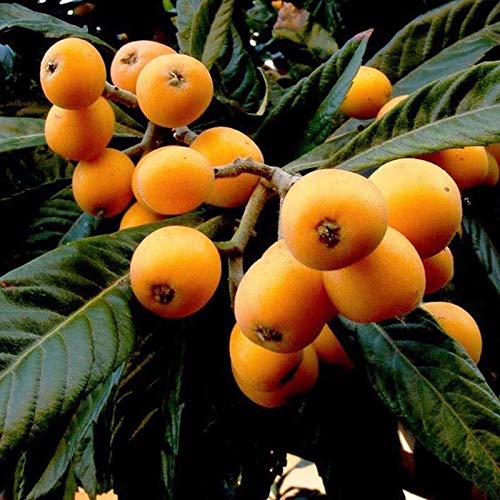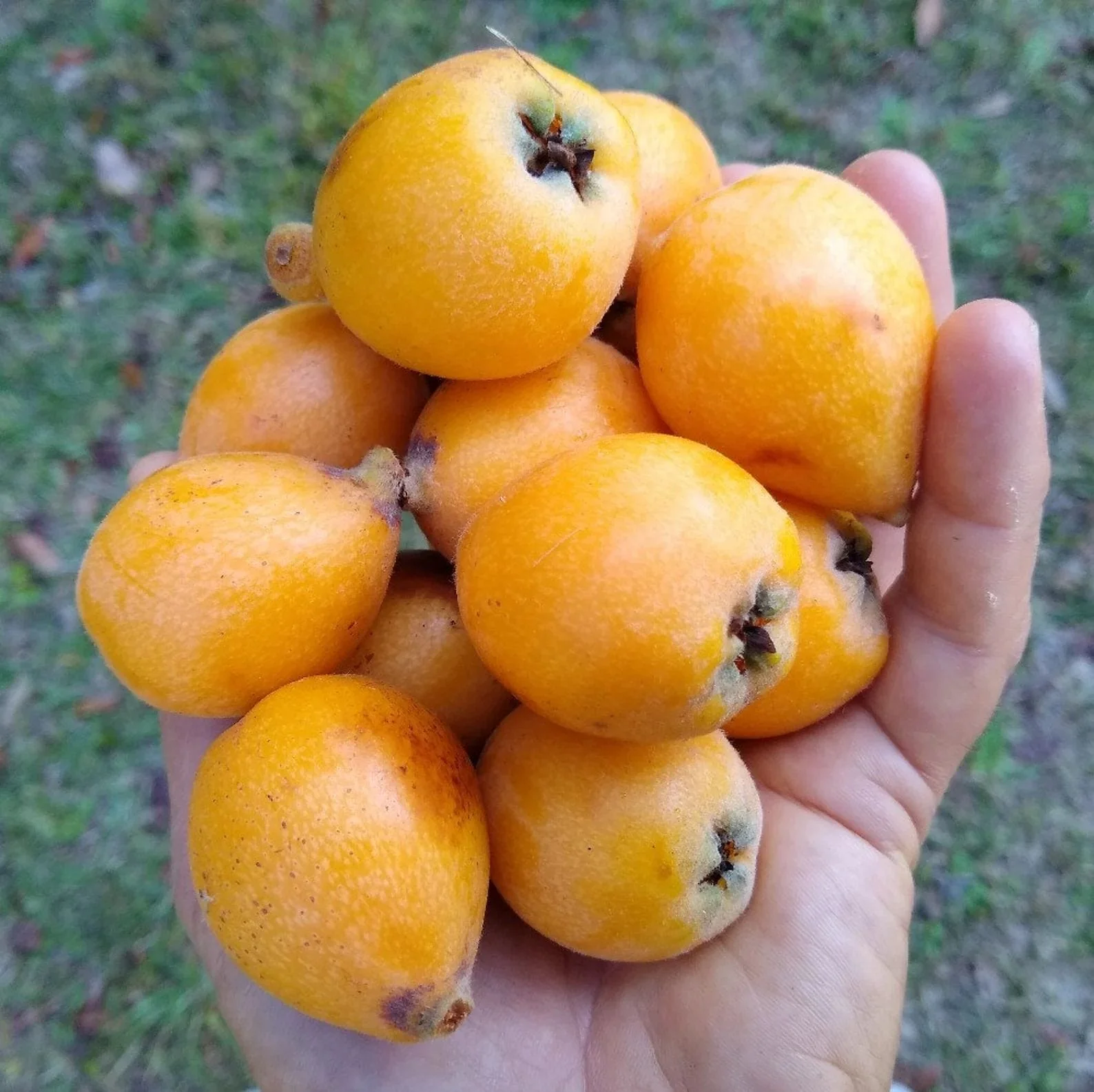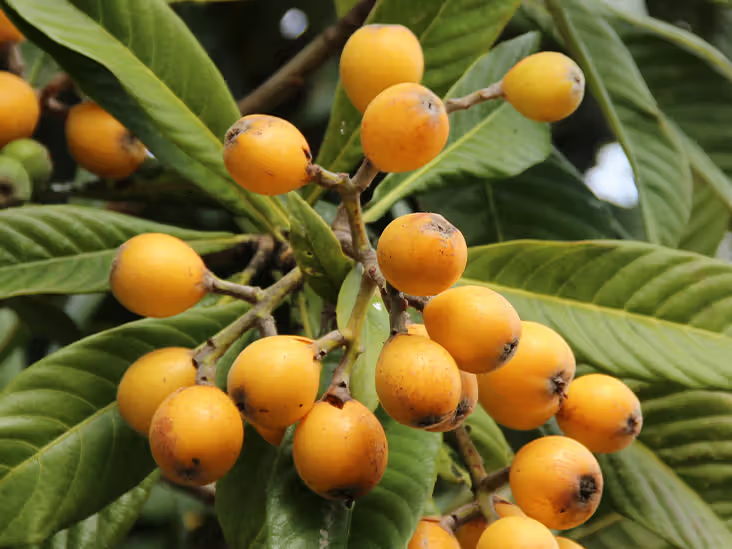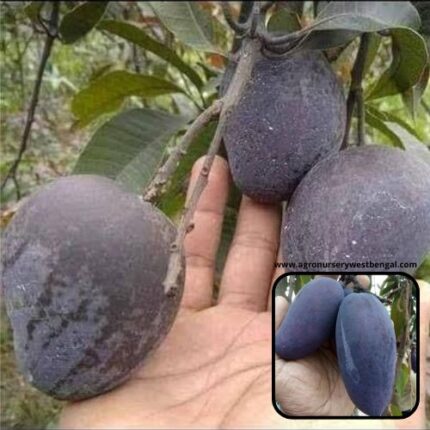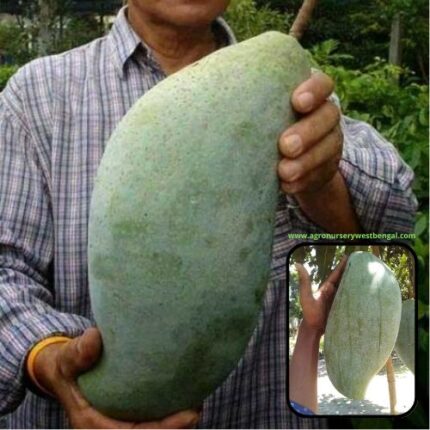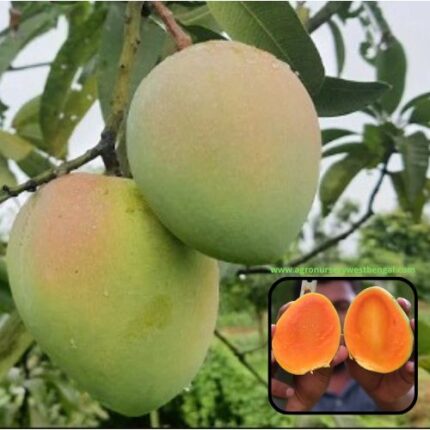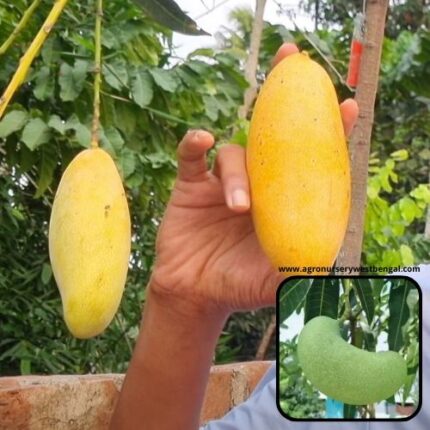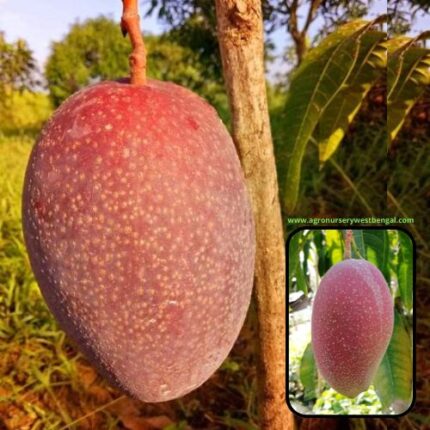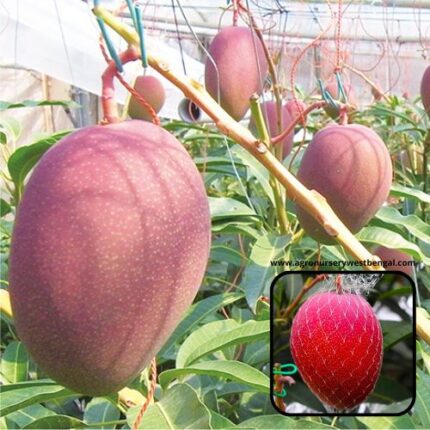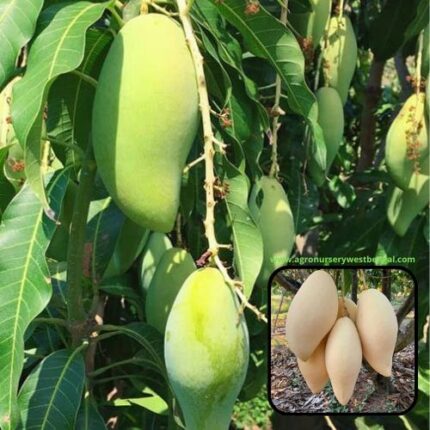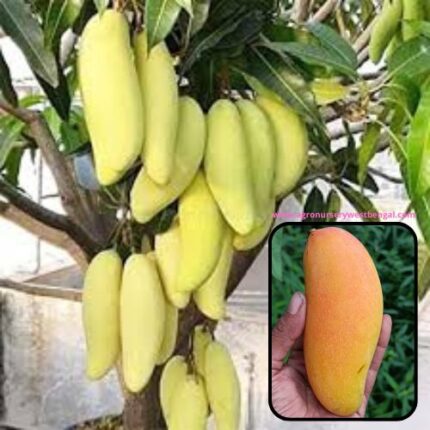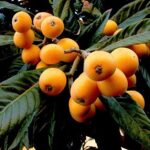
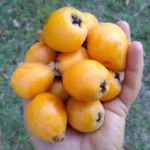
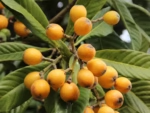
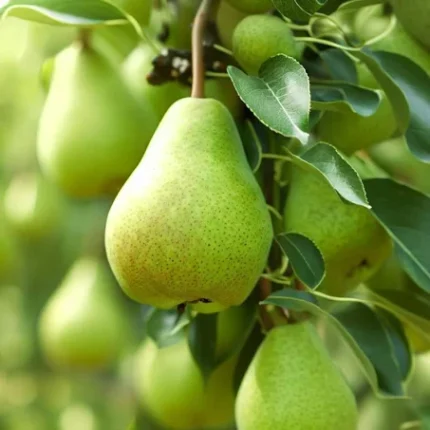
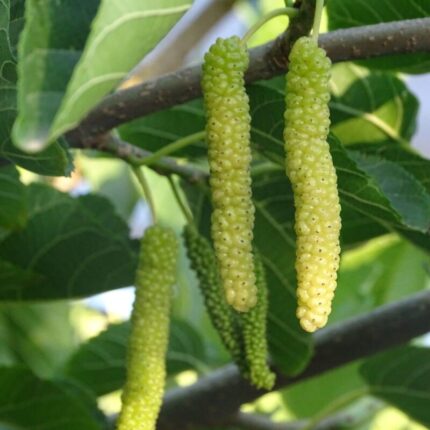
Loquat fruit plants
₹1,299 Original price was: ₹1,299.₹799Current price is: ₹799.
The Loquat (Eriobotrya japonica), also known as Japanese Plum or Japanese Medlar, is a delightful and unique subtropical fruit. Though native to southeastern China, it’s widely cultivated in Japan, Mediterranean regions, and parts of the United States (like California and Florida). It’s appreciated for its early spring/summer harvest, often being one of the first fruits to ripen.
Here’s a detailed description of the Loquat fruit:
1. The Fruit:
-
Appearance (Exterior):
- Shape and Size: Loquats are small, typically oval, round, or pear-shaped, ranging from 1 to 2 inches (2.5 to 5 cm) in length, similar in size to a cherry or small plum.
- Skin: The skin is thin and delicate, ranging in color from yellow to bright orange when ripe, and can be smooth or slightly fuzzy (downy), depending on the variety. It’s edible, though some prefer to peel it for a smoother texture.
- Clusters: Loquats grow in attractive clusters of 4 to 30 fruits on the tree.
-
Appearance (Interior):
- Flesh: The flesh is juicy, soft, and somewhat firm when perfectly ripe, with an aqueous and succulent consistency. Its color can vary from white to yellow to orange, depending on the specific cultivar.
- Seeds: Each fruit contains one to five (though sometimes up to 10) large, glossy, brown, inedible seeds in the center. These seeds are relatively easy to remove.
-
Taste and Texture:
- Flavor: The taste of a ripe loquat is wonderfully complex – a pleasant balance of sweet and tart, often with floral notes. Many describe it as a unique combination of apricot, cherry, pear, and sometimes hints of citrus or even tropical flavors. The level of sweetness and tartness can vary significantly between varieties and ripeness levels; unripe loquats are notably more tart. A strong, fruity aroma often indicates ripeness.
- Texture: The texture is tender, juicy, and crisp, much like a ripe pear, but can also be smoother and melt-in-your-mouth.
2. The Plant (Eriobotrya japonica):
- Growth Habit: The loquat grows on an evergreen shrub-like tree, typically reaching 10 to 25 feet (3 to 8 meters) in height, though it can grow taller. It has an attractive, somewhat weeping or spreading canopy, making it a popular ornamental tree.
- Leaves: The leaves are large, long, leathery, and dark green on the upper surface with a slightly fuzzy, brownish underside. They are evergreen, providing year-round beauty.
- Flowers: Loquat trees are unique among fruit trees for blooming in the fall and early winter (October to February in many regions). The small, fragrant, whitish flowers grow in clusters at the tips of the branches.
- Climate: Loquats are subtropical trees, thriving in mild temperate climates. They are relatively cold-hardy, but their flowers and developing fruit can be damaged by hard frosts.
- Soil: They prefer well-drained soil and full sun for best growth and fruit production.
3. Seasonality and Harvest:
- Loquats typically ripen in late spring to early summer (April to June in many areas), making them one of the earliest fruits of the warm season.
- Ripe fruits should be slightly tender to the touch and emit a sweet aroma. They bruise easily and have a short shelf life, making them a special seasonal treat.
4. Uses and Benefits:
- Fresh Consumption: Loquats are most commonly enjoyed fresh, either by peeling the skin or eating it along with the flesh (after removing the seeds).
- Culinary Uses: Their sweet-tart flavor makes them excellent for a variety of culinary applications:
- Jams, jellies, preserves (high pectin content makes them ideal)
- Pies, tarts, crumbles, cakes
- Sauces, chutneys, and salsas
- Used in fruit salads or savory dishes for a sweet-tart note
- Can be made into juices, wines, and liqueurs.
- Nutritional Value: Loquats are a healthy addition to the diet, being:
- Low in calories.
- Rich in dietary fiber (especially pectin), which aids digestion and helps prevent constipation.
- An excellent source of Vitamin A (beta-carotene), crucial for vision, skin health, and immune function.
- Contains Vitamin C, boosting immunity.
- Provides minerals like potassium, manganese, and some calcium, phosphorus, and iron.
- High in various antioxidants (carotenoids, flavonoids, phenolic compounds), which protect cells from damage and contribute to anti-inflammatory effects.
- Health Benefits: Supports digestion, boosts immunity, may help manage blood sugar and cholesterol levels (due to fiber), contributes to skin and eye health, and has anti-inflammatory properties. Traditional Chinese medicine has also used loquat leaves and fruit for coughs and respiratory ailments.
The loquat is a truly underrated fruit that offers a unique and refreshing taste experience, making it a delightful addition to any garden in suitable climates

